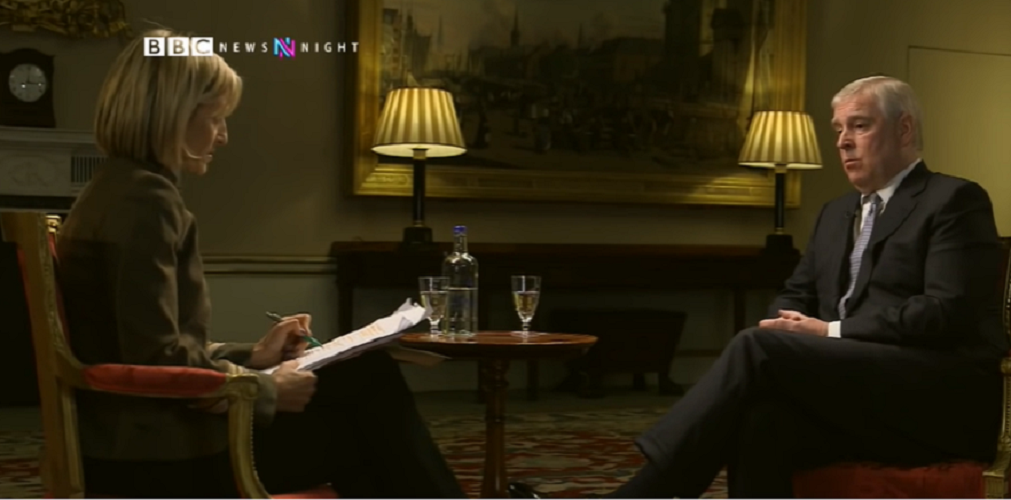The art of successful interviewing is often overlooked in newsrooms, writes our deputy managing editor Graham Dudman.
And I don’t mean job interviews.
I’m talking about gathering information by speaking to people either face to face or on the phone or via Skype/Zoom or any of the other ways we have recently learned to communicate.
Too many young journalists think the only way to get information for their story is to rewrite stuff they’ve read online.
Big mistake.
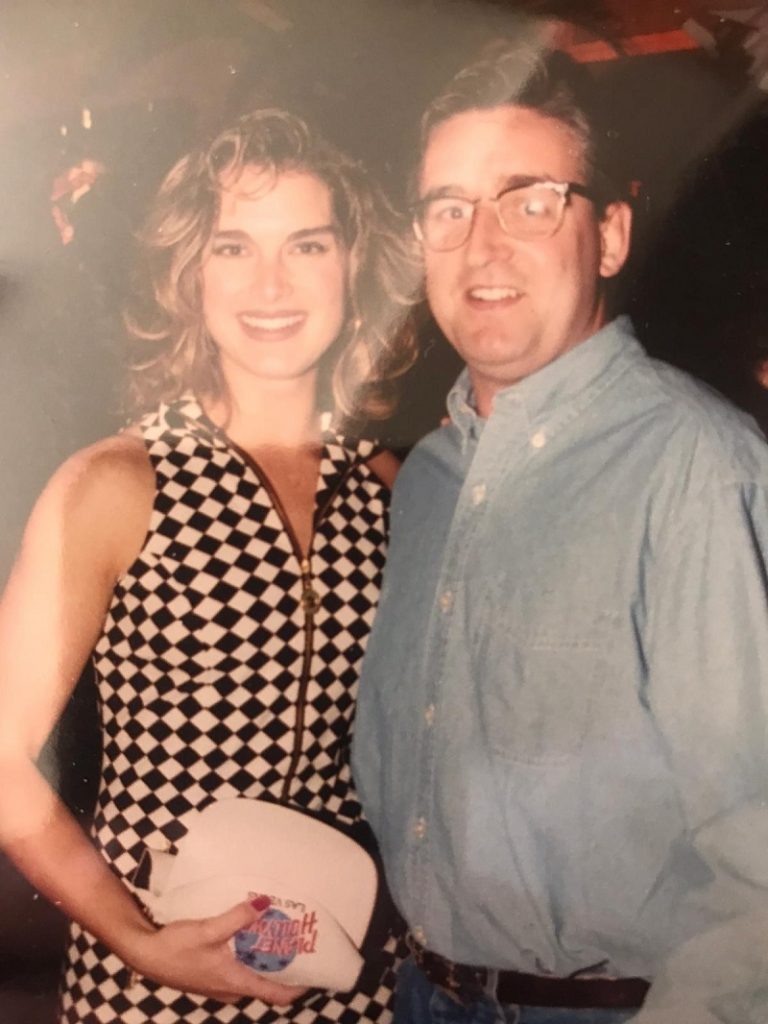
Actress Brooke Shields talks fame and marriage plans during a restaurant launch in Las Vegas.
Those of us who remember life before email and group chats often talk about today’s new generation of journalists being reluctant to communicate by actually talking to people.
‘It’s generation mute,’ complain the generation who wished they’d grown up better connected.
And while the term ‘generate mute’ is unfair – it can reflect some trainee journalists’ reluctance to pick up the phone to ask questions.
Firing off a series of emails is certainly easier and less awkward.
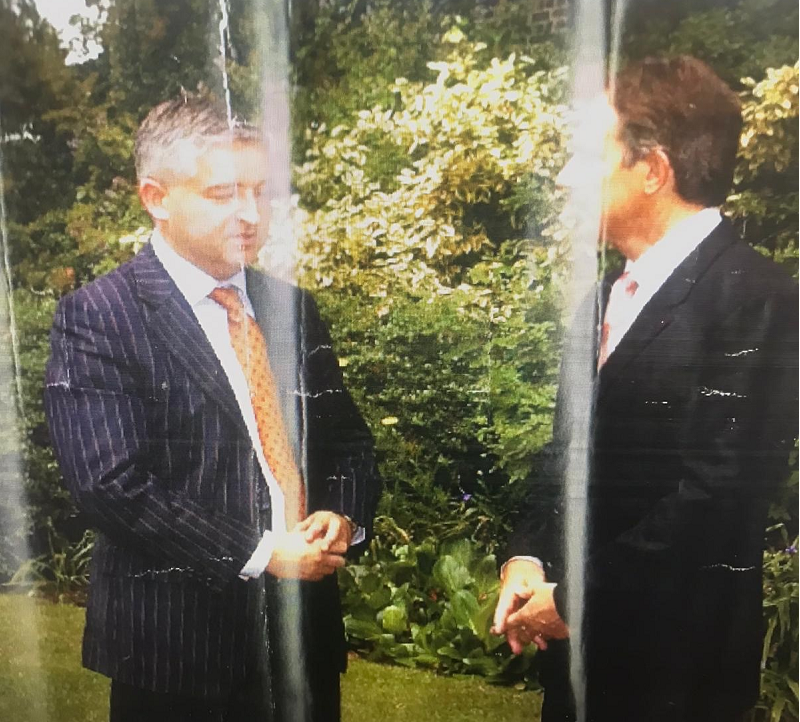
Interviewing Tony Blair in the Downing Street garden about The Sun’s Police Bravery Awards.
But how much information are you getting? What about a follow-up question? What if your interviewee reveals a fascinating new fact and you can’t get them to expand?
When it comes to interviewing subjects for your story, you will almost certainly write a better article with more detail, more facts and gain more readers if you have spoken to your interviewee.
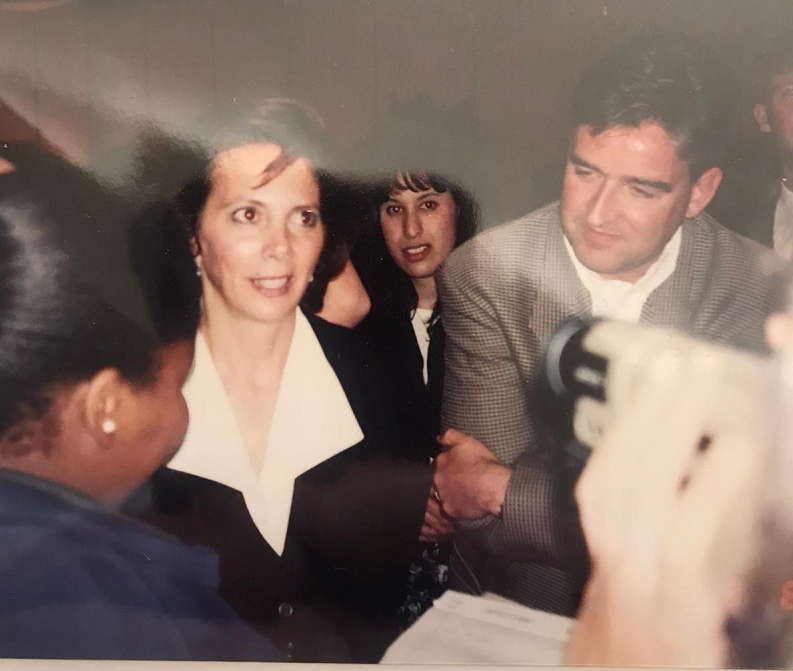
Marcia Clarke, lead prosecutor in the OJ Simpson murder trial, discusses the case during a book tour in Miami.
The less formal you can make the interview, the better it will run.
Try to make the conversation as much like an informal chat as possible. It will help relax your subject and help them open up and tell you interesting stuff for your story.
Don’t be nervous or scared to talk to them. They will probably be flattered a journalist is interested in what they have to say.
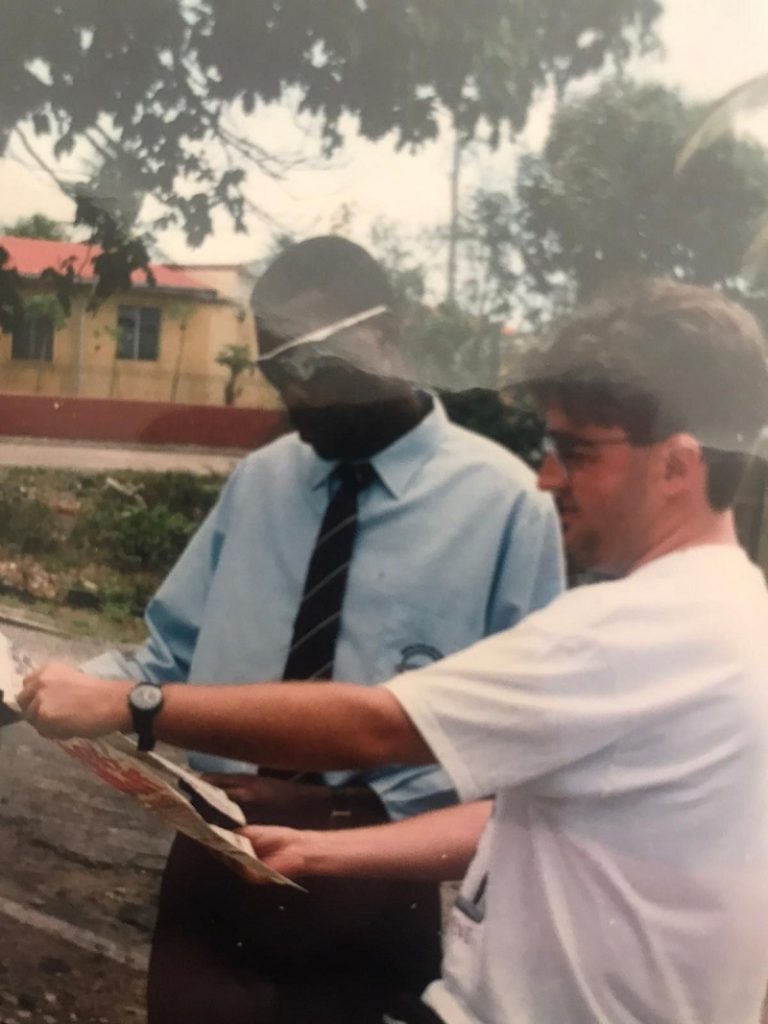
West Indian cricket legend Curtly Ambrose talks outside the fast bowler’s house in Antigua.
Ask a few simple open-ended questions (where the answer isn’t ‘yes’ or ‘no’) and you will have a richer, deeper set of facts, figures and emotions for your story than any email questions will provide.
Hopefully you found that helpful, if you have any questions about interviewing let us know in the comments!
On our NCTJ-accredited BA (Hons) Multimedia Journalism degree all trainees are treated like journalists on their first day – regularly writing for the publications we run.
Read about Lauren’s first term studying journalism at the School of Journalism: https://schoolofjournalism.co.uk/blog/gig-reviews-and-inspiring-journalists-my-first-term-at-the-school-of-journalism/
Read about Adam’s first term studying journalism at the School of Journalism: https://schoolofjournalism.co.uk/blog/the-brownlee-brothers-to-sale-fc-my-first-term-at-the-school-of-journalism/
You may also like:
Top tips for journalists: How to source stories
Top tips for journalists: How to prepare for an interview
Featured image courtesy of BBC Newsnight via YouTube

